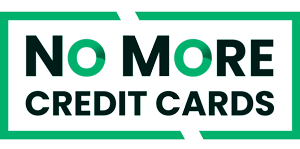Debt consolidation loans for bad credit are only a good idea if: –
- The total cost of the loan – including fees, interest, and any other charges – is lower than the average rate on your existing debts. This ensures you’re actually saving money by consolidating.
- Your budget supports the new payment – meaning you can comfortably afford the new consolidated loan’s monthly payment without straining your financial situation.
- The loan’s payoff period aligns with your financial goals – ensuring that the loan term supports your broader financial strategy and doesn’t extend repayment beyond your desired timeline.
By meeting these conditions, you can make sure that a debt consolidation loan works in your favor, even with bad credit.
Check new loan rates after September 2024’s Fed rate cuts through LendingClub, Credible, LendingTree, or Upstart—four of the top-rated free loan marketplaces online.
In the following, we’ll explain how debt consolidation loans for bad credit work, the average cost of these loans, and the best lenders to consider using.
First off, what’s considered a bad credit score? According to Credit Karma, a credit score below 600 is generally considered a bad credit score.
Can I consolidate my debt with a bad credit score?
A bad credit debt consolidation loan is a type of loan that allows individuals with a poor credit history to consolidate their debts into one single loan. The loan is designed to help individuals with bad credit reduce their monthly payments, simplify their finances, and improve their credit scores.
With a bad credit debt consolidation loan, you can pay off your outstanding debts, such as credit card balances, personal loans, and medical bills, with one single loan. In addition, the interest rate on the consolidation loan may be lower than the rates on your existing debts, which can help you save money in the long run.
However, it’s important to note that getting a bad credit debt consolidation loan may come with higher interest rates and fees than traditional loans, as lenders consider you a higher-risk borrower. You may also need to provide collateral, such as your home or car, to secure the loan.
Refrain from cheating yourself by not carefully reviewing your loan contract for all fees affiliated with the loan. Instead, carefully do the math, add the loan cost, make sure not to leave anything out, and compare it to the accounts you plan to consolidate. Look for loan origination fees, interest rates, monthly fees, processing fees, and administration costs.
Don’t just sign for a loan because they offer you a low monthly payment. A low monthly payment can cost more in interest over the long term.
What is the average cost of a debt consolidation loan with a 600 credit score?
The average cost for a debt consolidation loan with a (FICO) credit score of 600 can vary depending on the type of loan, the lender, and other factors such as your debt-to-income ratio and employment history. However, generally speaking, individuals with a credit score of 600 or lower may be considered high-risk borrowers and may face higher interest rates and fees than borrowers with higher credit scores.
Here are some rough estimates of the average cost of loans for individuals with a credit score of 600:
- Personal loans: Personal loans for individuals with a credit score of 600 may have interest rates ranging from 20% to 40% or higher, with an average APR of around 30%. Fees may include origination fees, prepayment penalties, and late payment fees.
- Home equity loans or lines of credit: Home equity loans or lines of credit for individuals with a credit score of 600 may have interest rates ranging from 8% to 15%, with an average APR of around 11%. Fees may include appraisal fees, closing costs, and early termination fees.
- Peer-to-peer loans: Peer-to-peer loans for individuals with a credit score of 600 may have interest rates ranging from 15% to 30% or higher, with an average APR of around 20%. Fees may include origination fees and late payment fees.
According to NerdWallet.com, “Peer-to-peer loans can be an option for bad-credit borrowers (those with FICO scores of 629 or below) but may have higher interest rates. For example, a four-year, $15,000 loan with a 28.7% APR would have monthly payments of $529 and an overall interest cost of $10,383. You can calculate average rates and payments using a personal loan calculator. While lenders like LendingClub, Prosper and Upstart have minimum credit scores in the bad- or fair-credit range, you may be eligible for lower rates with a credit union or by pursuing a secured or co-signed personal loan.”
Source: Nerdwallet.com, Peer-to-Peer Personal Loans for Borrowers





